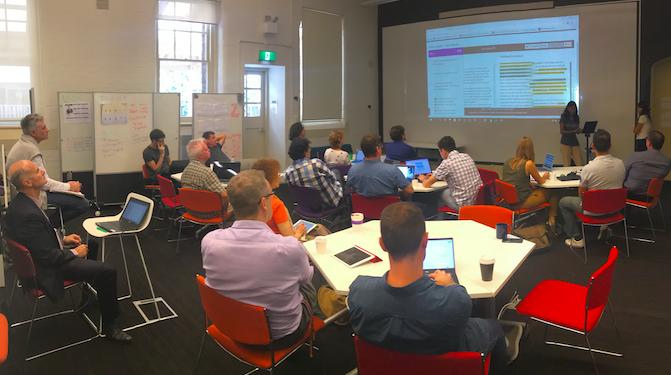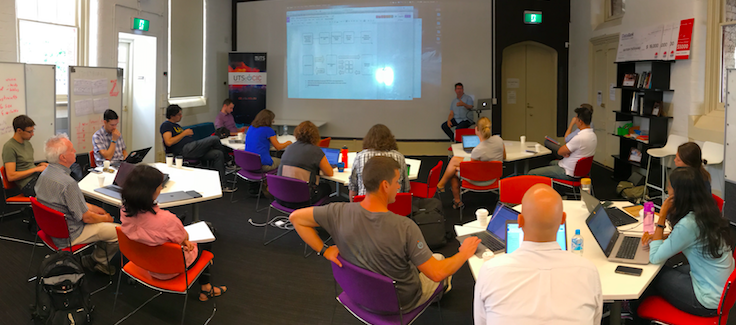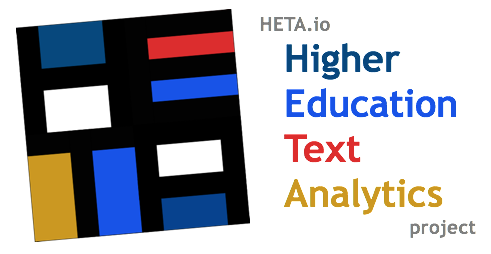
The project convened for its kickoff workshop at the UTS Connected Intelligence Centre this week. Our skills matrix revealed an exciting mix of expertises, with staff spanning academic researchers, cloud architects, writing pedagogy specialists, analytics developers and senior managers from institutional analytics centres.
Two packed days saw the UTS team demo current tool capabilities, and the five university groups forming into their Work Package teams, generating a rich set of ideas and functional requirements for the three text analytics applications (Writing Analytics, Survey Analytics and Curriculum Analytics).
The tech teams immersed themselves in the Text Analytics Pipeline, and return now to spin up their own local instances.
Thanks everyone for all the hard work. This is going to be exciting!…





